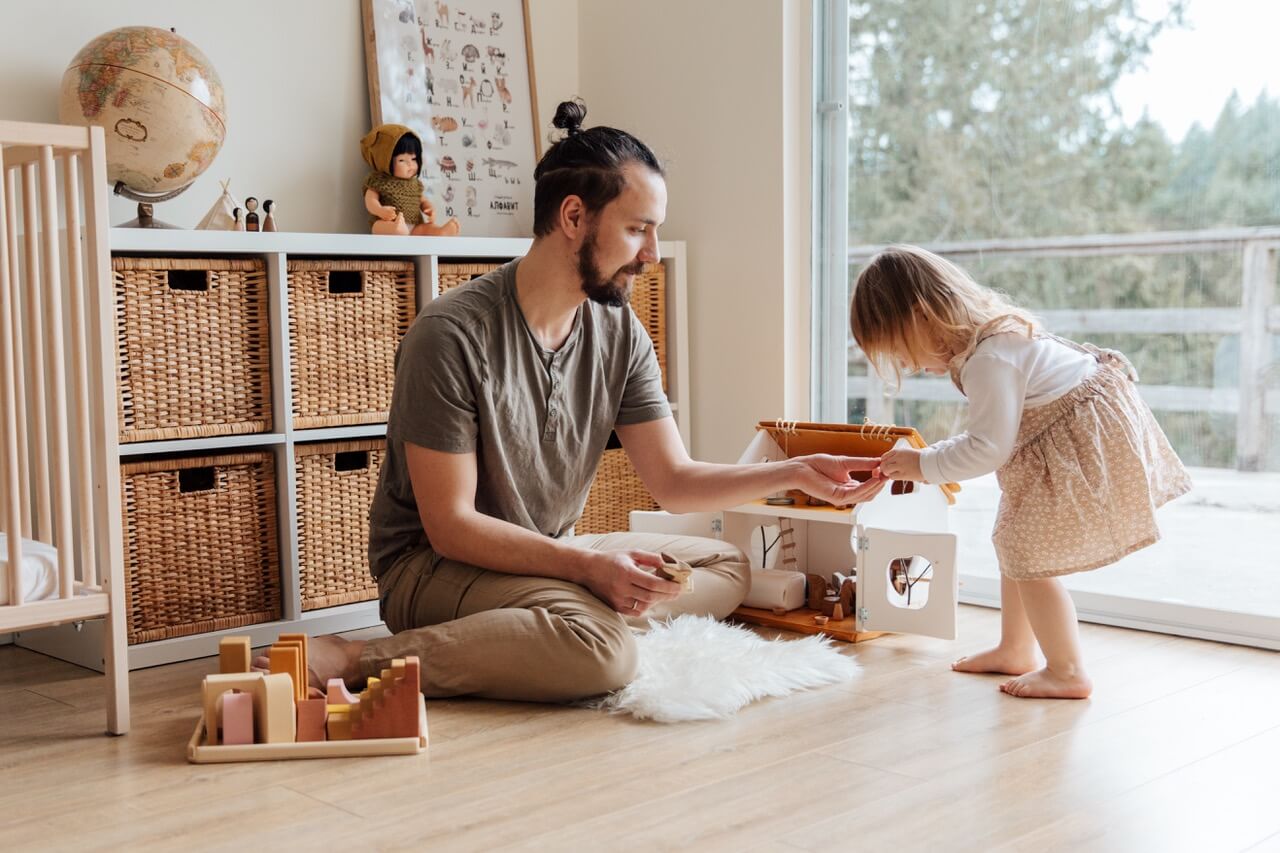A remarriage or marriage to a partner who’s divorced or widowed isn’t always just the business of joining of two people together. More often than not, children from a previous marriage come as part of the package. If you’re someone who’s about to gain a blended family, you’ve probably been preparing as best as you can to adjust quickly.
Perhaps you’ve even gotten a head start and had already begun to bond with your future step children before your nuptials to their parent. Nothing quite compares to actually having them live under your roof and be under your care, however. All of a sudden, you have children (or more children) depending on you and your partner for love and attention on top of the basic necessities.
It takes some organisation and a modicum of financial stability to take care of a child’s material needs. And, given a little more effort, acting as a firm and fair disciplinarian and a provider of positive attention is doable. What remains to be seen is if your relationship with your step children will eventually become that of one between a bio parent and child.
In fact, it remains to be seen if you can learn or want to love your step children as a biological parent. Because the not-so-secret fact of being a step parent is that not everyone gets to that point. Over time, you can become friends with your step child. They may even trust you to do what’s best for them—but it doesn’t mean that they’ll see you as a parent or that you’ll see them as your son or daughter.
And that’s not necessarily a bad thing.
Daftein tackles this sensitive issue and answers whether it’s alright to love your step children a little differently than you would a biological child.
Level 1: Surface-level Care
Children, especially young ones, are dependent on their guardian or caretaker for most things. As a step parent, you’ve signed up to act in that capacity together with your spouse, the child or children’s biological parent.
This involves providing the basic things to survive like food, shelter, clothes, etc., as well as being present in their lives, like showing up to a school or sports event, eating together, and staying at home to watch over them when their biological parent is out. It’s not very deep, and it doesn’t involve much emotional investment in the child or children. You just need to tick the boxes of their basic needs while your spouse takes care of being the parent.
In fact, your reason for caring for your step kids maybe as simple as because you know it will please your spouse!
As a step parent, maintaining a clear boundary between you and your step children is possible. And seeing their care as only an extension of your love for your spouse doesn’t necessarily have to be a bad thing. Both sides might even prefer that only their biological parent(s) handle them for the most part and everybody’d be happier for it.
So, don’t beat yourself up if you don’t feel like developing deep parental bonds with your spouse’s children at all. In fact, even if your relationship with your step children doesn’t progress further than that, you wouldn’t be at fault for anything. There is no shame in it. This isn’t a personal failure, nor does it reflect badly on you as a person.
The rule of thumb is that as long as you treat your step kids humanely and actively try not to hinder their mental and emotional growth, then you’re doing fine.
How involved you want to be in the life of your step children is ultimately your choice.
If you’re of this mindset, though, talk this through with your spouse, preferably before you tie the knot. Your partner might have a different idea of what your role in the blended family will be like, and it’ll be best for everyone involved if you’re on the same page right at the beginning.
Level 2: Seeing Them as Individuals
Your situation could also lead you on another path: the one where you find some room in your heart to accommodate an appreciation for the children who aren’t related to you by blood. You allow yourself to take pride in your step children’s accomplishments, share in their troubles, and take an interest in their interests.
This type of relationship arises more often in blended families where the step parent entered the child’s life earlier. When the non-biological parent plays a significant role in the child’s early stages of growth and development, they tend to have more memories and experiences in common that they can look back on and bond over.
Sharing experiences and milestones doesn’t automatically mean that you are acting in the capacity of a parent who loves their child, blood relation or not. On this level of step-parenting, you could just be seeing your spouse’s children for the individuals that they are, and you are happy to be part of their lives. It may or may not have initially developed from a feeling of obligation towards your spouse, but it’s now almost like a friendship or having a small roommate who partly depends on you to care for them.
Either way, you understand on a deeper level that your step children have thoughts, opinions, hobbies and interests, and life goals separate from your spouse’s own. But those facets are only developing parallel to you instead of intertwined. There are less boundaries or they are laxer, but there are boundaries nonetheless.
Is this type of step parenting the ideal way to deal with your role in a blended family? Perhaps it is for you. Take the time to discern how involved you want to be with your spouse’s children, and make sure they (even your spouse, but let them know before the talk with the kids so you can discuss how you’ll present the facts) understand what you are comfortable sharing with them and how much you intend to invest in your burgeoning relationship as soon as possible.
This way, the children know what to expect from you: a friendly guardian they can trust, but not another parent. Managing expectations early, honestly, and directly with your step children goes a long way in deterring and miscommunications that could strain your relationship in the long run.
Level 3: A Deep Parent-Child Relationship
The third type of step parenting is one that has the most depth and calls for a high level of involvement in a step child’s life. That’s not to say that’s the best or the only type of relationship you should strive for. We’ve already mentioned that the relationship you build with your step children only goes as far as you’re willing to give and they’re willing to receive.
If you’re the type who wants to invest in your relationship with your step children, then Daftein will support you by providing some advice on what you need to prepare for and what to do. Trying to cultivate a deep parent-child relationship with your step children, while noble, also takes a lot of work, time, and patience, after all.
Beyond providing the physical necessities to live and being cordial as you share the same space, and more than the easy-going bond of being a friend to your step children, acting as a true parent to these children involves an emotional investment in their lives. Their mental wellbeing, psychological development, and general personal growth are yours to consider because you’ve taken on the responsibility of guiding and moulding these children into becoming good people.
You’ll be on the frontline when they need emotional support. This includes giving healthy praise and attention, dispensing advice, and dealing with big or unfamiliar emotions like when they process their new and shifting family life. You’ll also be one of their biggest cheerleaders as they chase their dreams. A true and deep parental bond with your step child means that you don’t merely wish them well in their journey through life. Rather, you’ll be trying to move mountains to make sure they’ll be alright.
You don’t actually have to move mountains if you want to foster a deep-seated parent-child relationship with your step children. Here’re some tips on how you can start building a strong foundation for your bond:
- Consciously avoid comparing the parent-child relationships of other blended families (or your own experience with your blood-related children) to your own. At best, you can try to pick out what worked best with other step families. But always remember that each blended family’s circumstances are unique and you might have to adapt your methods to your own family.
- Don’t let external expectations about how a blended family (or any family, for that matter) should work dictate how you bond and relate to your family. Nor should you let it colour your idea on how fast the pace of your relationship should develop.
- Be humble. Acknowledge that you don’t know everything, especially about your step child’s thought, experiences, and what they are going through. Once you understand that there will always be gaps in your knowledge (there’ll be a lot of those especially in your early days as a step parent), you’ll become more open and ready to learn about your step child and share your own life with them. Open communication with each other and a willingness to keep an open mind about the other are key ingredients to a successful step parent-child bond.
Do you think you’ll ever get to the deepest level of step parent-child bonding? Or would you rather maintain some boundaries between you and your step children?
Whichever path you choose to take—and mind you, it’s not always a linear path—will be the correct answer as long as you’re honest with yourself and clear about your motivations. Always keep in mind that there is no standard way to care for and even love a child who isn’t of your own blood; you could let their biological parent handle them while you handle things in the background, you can be their friend, you could become a parent-figure to them, or something else on the scale.
What matters is that the child grows up knowing that they are loved and can depend on the adults in their lives to be there for them. Whether that adult is going to be you and your spouse or just your spouse is your decision.
Hopefully, this blog will have taught you given you an idea on how best to tackle starting a relationship with your spouse’s child or children from a past marriage. But if you need help with a more in-depth look at your particular circumstances, you can talk to a relationship coach at Daftein.









